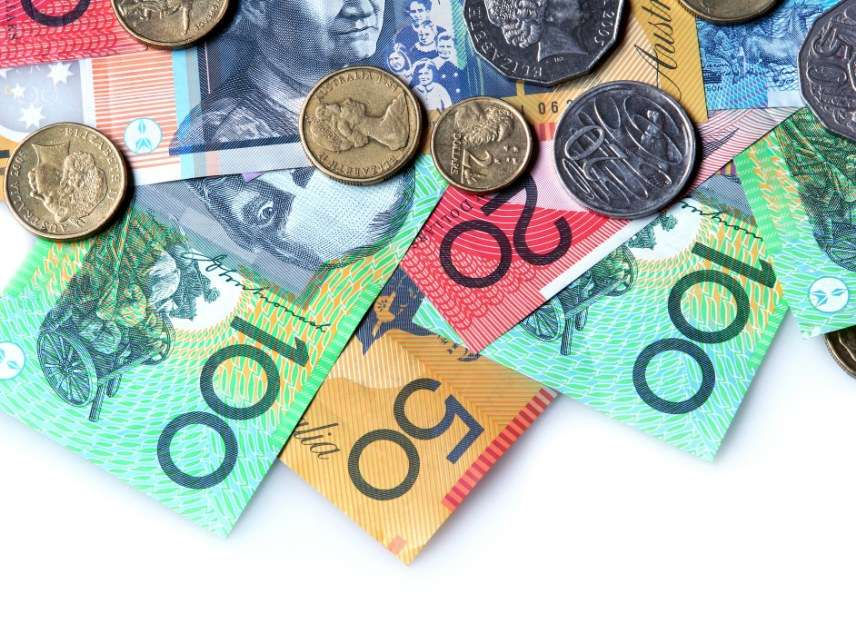Australia Attempts to Fight Tobacco Black Markets by Banning Large Cash Transactions
- OurStudio

- May 14, 2018
- 4 min read

Robyn Mackenzie / Dreamstime.com
Australia's government plans to fight the country's tobacco black market by banning cash payments of more than $10,000 in Australian dollars—the equivalent of about $7,500 in the United States.
What this actually does is create a new black market for money exchanges while screwing over any law-abiding citizens who want to engage in large cash transactions for any number of perfectly normal reasons.
This is all about revenue, of course. Australia has the highest cigarettes taxes in the world. As in New York City—which has the highest cigarette prices in the United States, mostly due to taxes—the results are a massive black market and organized crime. More importantly, as far as the Australian government is concerned, it's not getting its money. Officials hope the ban on big cash payments will bring in an additional $3 billion a year.
This estimate assumes the smugglers and other black marketeers won't simply change the way they do their cash transactions, or turn to cybercurrencies, or, you know, just not comply with this law either. Obviously this new regulation will not prompt a lot of lawbreakers to suddenly toss aside a lucrative lifestyle. It will probably just be another criminal charge and a somewhat tougher sentence for those who get caught.
But an ineptly crafted hammer like this is going to have some significant side effects on people who are completely law-abiding. The law doesn't care if your cash transaction is to purchase something perfectly legal or not. And as Matt Novak notes at Gizmodo, more than a third of all commercial transactions in Australia are in cash.
At the Australian news site news.com.au, the owner of a Sydney-based security company that collects and moves cash worries that this new law will decimate his business:
"It's going to screw me—95 per cent of my business is cash collections," [Paul] Thomas said. "On a monthly basis, we could process and move up to $4-5 million—either picking up cash, processing and EFT-ing it to customers' accounts, or recarrying it from customers to their bank branch." The 40-year-old said he had around 50 to 60 customers, nearly half of which were car yards. "All of my customers are legit operators, high-end car yards, money transfer depot stations," he said. Mr. Thomas says the $10,000 limit will cause some businesses to stop accepting cash altogether, eliminating the need for armoured vans and security guards, with courier companies able to transport paperwork to banks.
Comically, the authors of Australia's new cash transaction limit respond by pointing to countries in Europe that have done the same. Among the examples are countries like Italy and Greece.
Greece and Italy have the largest shadow economies in the European Union. About a fifth of all economic activity in Greece takes place off the books. America can't even compare: Only about five percent of our estimated economy activity is not declared for taxes.
Greece and Italy are not models for fighting black markets. Greece and Italy are failing miserably. Australia should examine the countries that are trying to crack down on cash use, and recognize that this often backfires miserably.
India tried to go after its black market by rendering some of its legal tender null and void, requiring citizens to swap out their cash holdings for new money—and answer probing government questions about where the money came from. While the stated intent was to go after wealthy tax dodgers, the reality ended up hurting the poor much more. Hundreds of millions of poor Indian citizens don't have bank accounts and had their lives upturned trying to swap their suddenly worthless currency into something they could spend.
As Reason's Shikha Dalmia noted, India's prime minister was ignoring the roots of the black market problem: The country's tax rate is too high, and corrupt bureaucrats rule via bribes.
Australia's black market for tobacco is easily and obviously tied to its massive tax rate. Cigarettes cost $30 a pack there! Yet the government claims that once it cracks down and gets all those missing billions in revenue, it'll be able to lower taxes. They just need to spend an additional $318 million first to create a brand new task force to go after the black market.
That won't work. The government needs to deal with the root cause of its black market: itself. The state has forced prices of tobacco so high that people are resorting to illicit means to get their hands on the stuff. Violating the privacy of all Australian citizens—demanding that they engage in financial transactions the way you want them to—will not do anything to fix this problem.
Australia is far from the only government fighting black markets in dumb ways. When California legalized recreational marijuana, it did so with a massive tax scheme. As a result, the state's black market in marijuana isn't actually going away. Rather than realizing that his tax and licensing schemes are too onerous, Gov. Jerry Brown just proposed spending $14 million to create new task forces to fight this new variation on the marijuana black market.
Bonus link: William J. Luther explains why it's a bad idea (and a violation of citizen privacy) for governments to try to eliminate cash transactions.




Comments